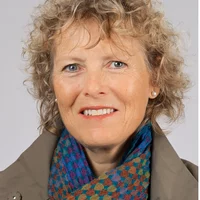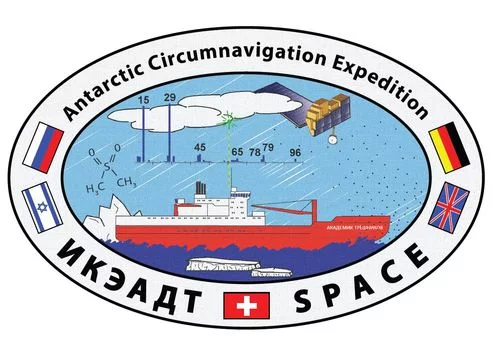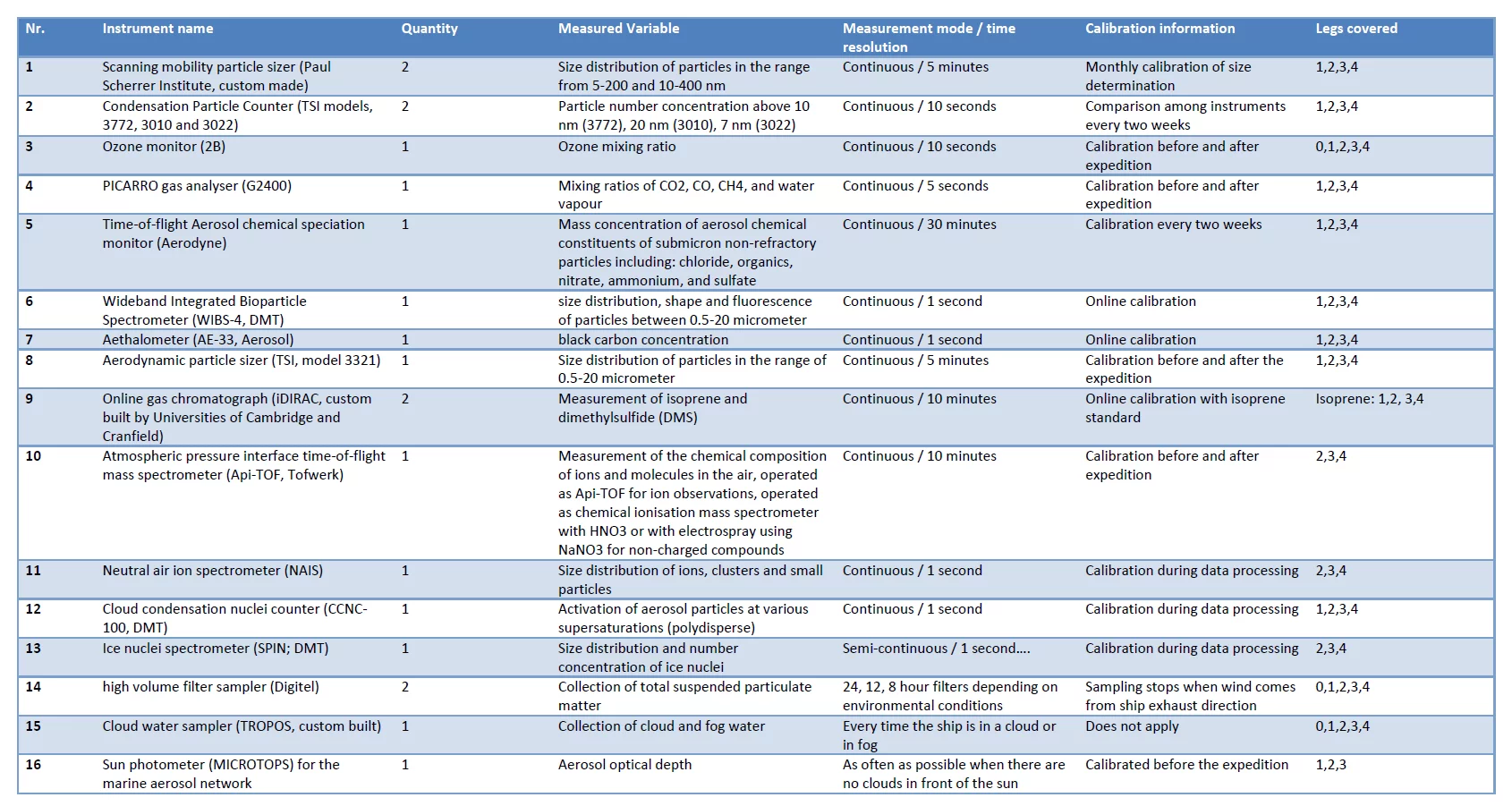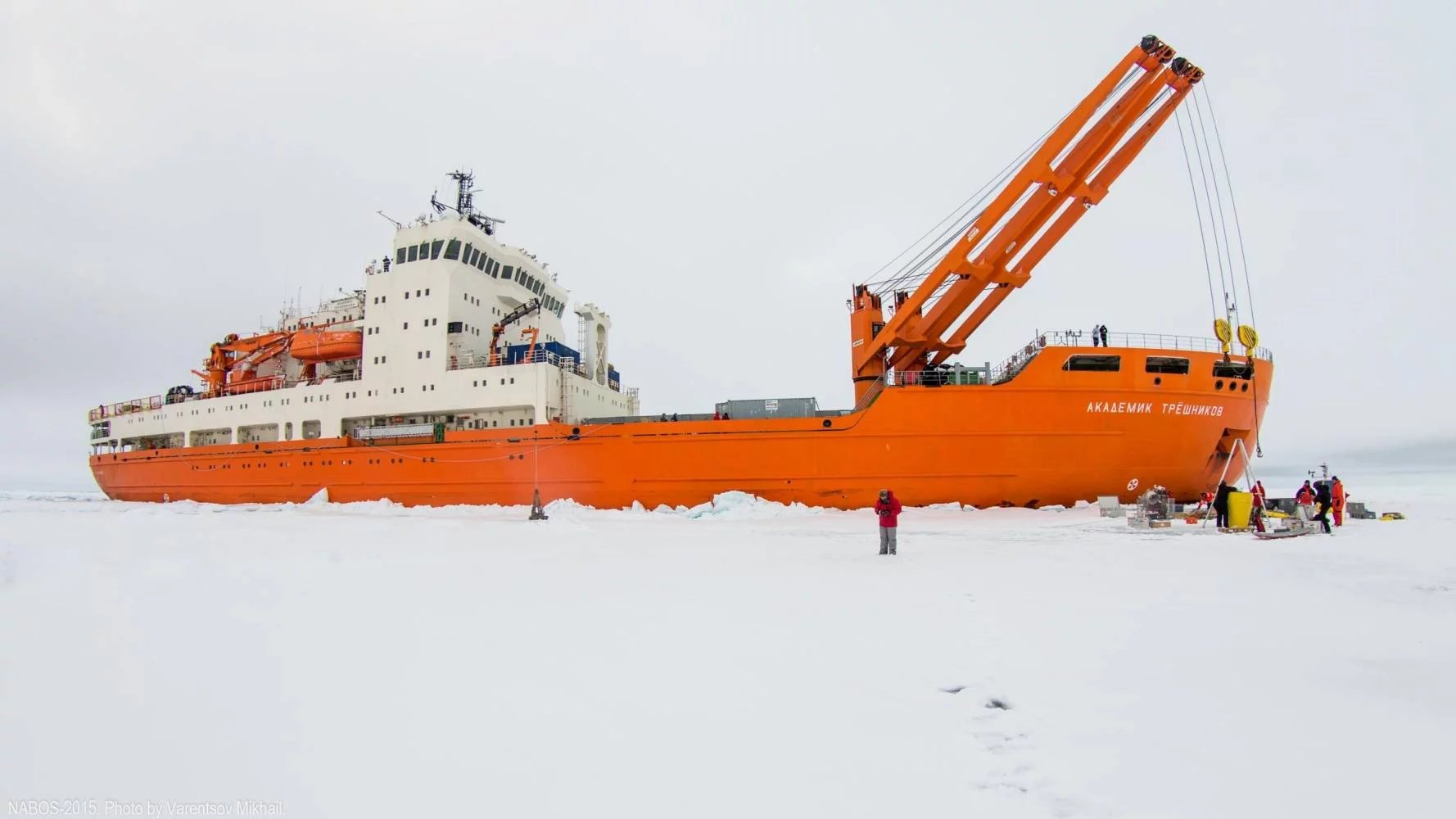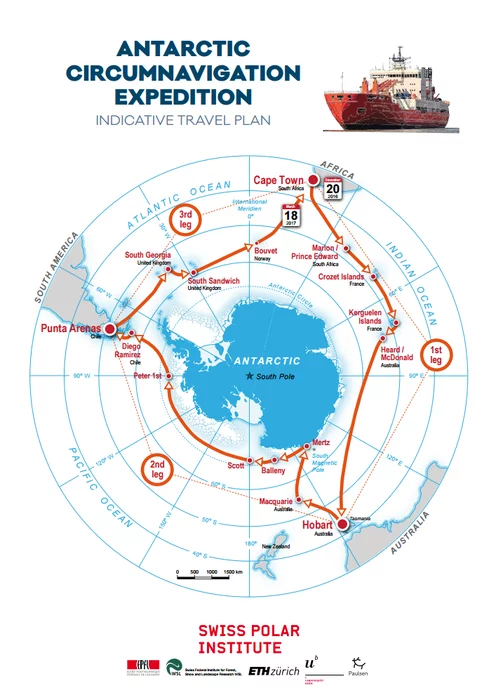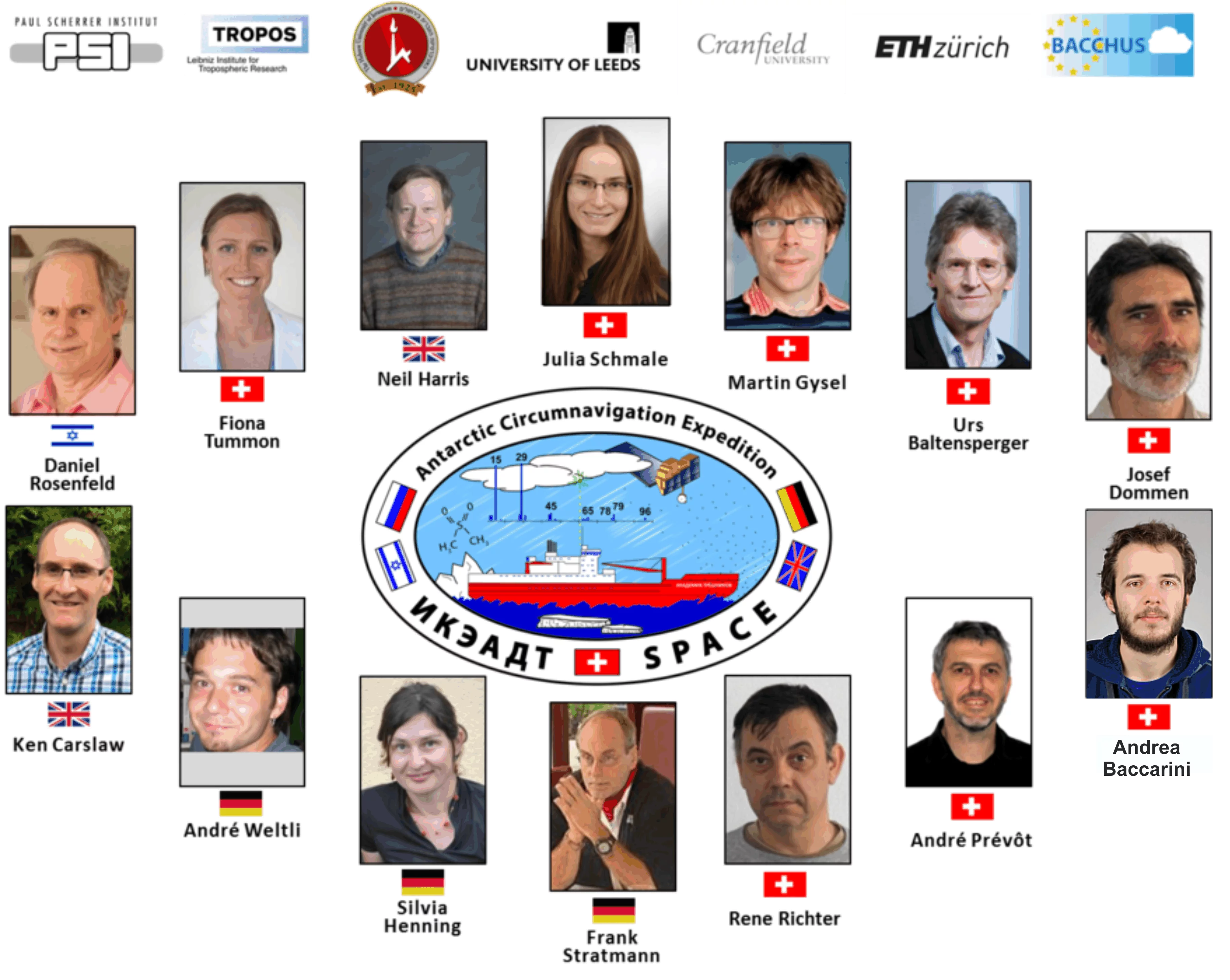Interested in Details?
If you are interested in first results or details of the project, don't hesitate to write Julia an email (julia.schmale@psi.ch).
Scope of project
From December 2016 to March 2017, scientific teams from all over the world will board the Russian research vessel Akademik Tryoshnikov for an unprecedented expedition around Antarctica. During the Antartic Circumnavigation Expedition (ACE), researchers will work on a number of interrelated fields, from biology to climatology to oceanography, for the future of this continent.
Aerosol-cloud interactions are the least understood anthropogenic influence on climate change (IPCC, 2013.) A major cause of this limited understanding is the poorly quantified state of aerosols in the pristine preindustrial atmosphere, which defines the baseline against which anthropogenic effects are calculated. The uncertainty in aerosol induced radiative forcing (± 0.7 from a mean of -0.55 W/m2) is twice the uncertainty for CO2 (± 0.35, mean +1.68 W/m2). Also, models grossly underestimate cloud solar reflectance there, by as much as 30 W m-2 during summer. We suspect it partly being due to poor representation of aerosol-cloud interactions. This project aims at reducing the uncertainty in the effects of aerosols on climate change by exploring preindustrial like conditions which can almost only be found in the Southern Ocean. The Southern Ocean is the most pristine aerosol environment on Earth, but almost the entire region remains unsampled. The ACE expedition provides a unique and unprecedented opportunity to prove or dismiss this hypothesis.
PSI's contribution: Study of Preindustrial-like Aerosol Climate Effects (ACE-SPACE)
ACE-SPACE will advance our understanding of a key issue in climate science: climate-relevant aerosol processes. These processes regulate the ability of aerosol to form cloud condensation and ice nucleating particles and hence modify the radiative properties of clouds. Our interdisciplinary approach of connecting on board in-situ and remote sensing measurements, satellite observations and global climate modeling, will provide value that greatly exceeds the knowledge gain of in-situ observations alone. Expected results are:
Aerosol-cloud interactions are the least understood anthropogenic influence on climate change (IPCC, 2013.) A major cause of this limited understanding is the poorly quantified state of aerosols in the pristine preindustrial atmosphere, which defines the baseline against which anthropogenic effects are calculated. The uncertainty in aerosol induced radiative forcing (± 0.7 from a mean of -0.55 W/m2) is twice the uncertainty for CO2 (± 0.35, mean +1.68 W/m2). Also, models grossly underestimate cloud solar reflectance there, by as much as 30 W m-2 during summer. We suspect it partly being due to poor representation of aerosol-cloud interactions. This project aims at reducing the uncertainty in the effects of aerosols on climate change by exploring preindustrial like conditions which can almost only be found in the Southern Ocean. The Southern Ocean is the most pristine aerosol environment on Earth, but almost the entire region remains unsampled. The ACE expedition provides a unique and unprecedented opportunity to prove or dismiss this hypothesis.
PSI's contribution: Study of Preindustrial-like Aerosol Climate Effects (ACE-SPACE)
ACE-SPACE will advance our understanding of a key issue in climate science: climate-relevant aerosol processes. These processes regulate the ability of aerosol to form cloud condensation and ice nucleating particles and hence modify the radiative properties of clouds. Our interdisciplinary approach of connecting on board in-situ and remote sensing measurements, satellite observations and global climate modeling, will provide value that greatly exceeds the knowledge gain of in-situ observations alone. Expected results are:
- Enhanced understanding of the aerosol properties, how trace gases modulate aerosol properties, and processes that are key to aerosol-cloud radiative forcing, including formation and growth of new particles and relevant chemical species e.g., from marine emissions.
- Improving satellite retrieval over the Southern Ocean by linking in-situ cloud condensation and ice nuclei measurements through on board remote sensing with cloud droplet number concentrations from satellite observations.
- Evaluating and constraining global climate model simulations through use of the measured aerosol and cloud data, and understanding the implications for radiative forcing and the related uncertainty.
Instruments
Field campaign
To achieve the goal, we will conduct ship-based measurements of aerosol microphysical and chemical characteristics as well as measurements of trace gases modulating particle characteristics and combine these with onboard remote sensing and satellite data of clouds to evaluate global climate models.
The expedition will be done with the Russian research vessel Akademik Tryoshnikov.
Current position of the ship:
The expedition will be done with the Russian research vessel Akademik Tryoshnikov.
Current position of the ship:

